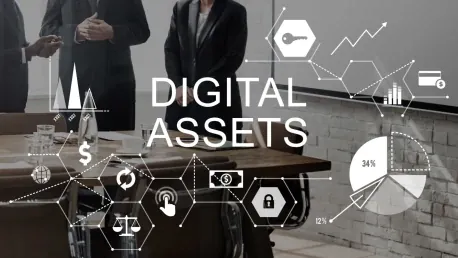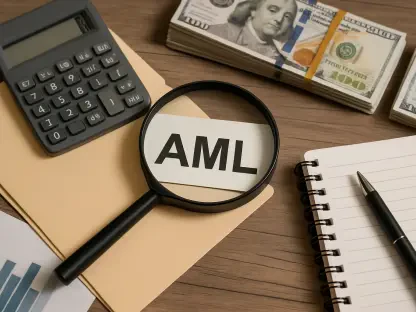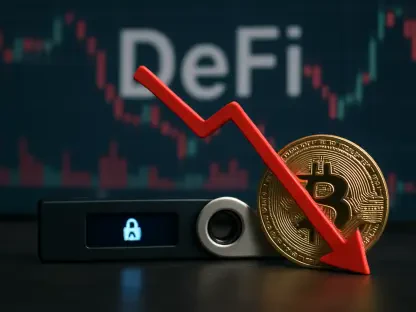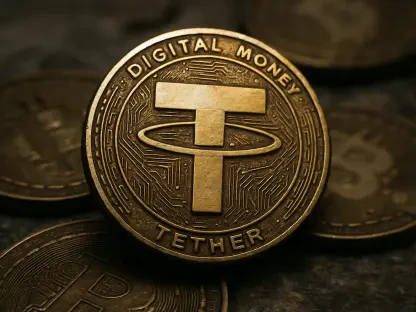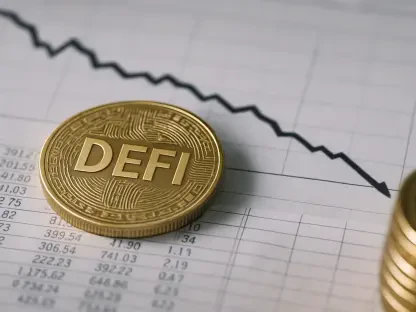Ripple has made significant strides with its recent enhancements to Ripple Custody, aiming to provide banks and fintech firms with more robust tools for managing digital assets on behalf of their clients. These updates are pivotal as the digital asset sector experiences rapid expansion, necessitating advanced solutions for secure custody. Among the key updates are the introduction of tokenization features for real-world assets (RWA) and the improved functionality of the XRP Ledger, facilitating seamless digital asset issuance and secure transfers. With this, Ripple aims to meet the growing demand for sophisticated digital asset management and to leverage the increasing value and importance of assets held in digital form.
The Ripple Custody service now boasts access to the XRP Ledger’s native decentralized exchange (DEX), providing low-fee trading of tokenized assets. This is a crucial development that not only enhances the utility of the XRP Ledger but also positions Ripple Custody as a formidable option for institutions seeking efficient trading solutions. Additionally, the service is now integrated with Elliptic’s compliance tools, which will be available starting December, along with a transaction screening service and upgraded hardware security module (HSM) options. These updates aim to bolster both security and compliance and cater to the regulatory requirements that institutional investors must meet.
Tokenization and Enhanced Security
Tokenization has emerged as a game-changing feature in the management of digital assets, offering a streamlined way to represent real-world assets on the blockchain. Ripple’s new tokenization features make it easier for banks and fintech firms to issue tokenized versions of traditional assets, enhancing liquidity and enabling a broader range of investment opportunities. This feature also includes functions that facilitate the seamless transfer of these assets, thereby making transactions more efficient and cost-effective. As the demand for tokenized assets grows, these improvements are likely to attract a broad array of institutional clients looking for reliable custody solutions.
Enhanced security measures are another cornerstone of Ripple’s recent updates. The integration of Elliptic’s compliance tools will provide comprehensive monitoring and screening solutions to ensure that all transactions meet stringent regulatory standards. This integration is expected to become available in December and is a crucial component in helping institutional clients navigate the complex regulatory landscape. Moreover, upgraded hardware security module (HSM) options have been introduced to further fortify the security framework. This multi-faceted approach aims to provide a highly secure environment, assuring clients that their digital assets are safeguarded against potential risks and threats.
Strategic Acquisitions and Industry Growth
Ripple’s consolidation of its products under the Ripple Custody brand and the strategic acquisition of digital asset custodian Standard Custody signify its ambitions to dominate the digital asset management space. This acquisition is particularly impactful, as it allows Ripple to leverage Standard Custody’s New York trust and money transmitter licenses. These regulatory endorsements are essential for Ripple as it plans to roll out a USD-backed stablecoin and accelerate its real-world asset tokenization initiatives. Jack McDonald, CEO of Standard Custody, will take on the role of Ripple’s SVP of stablecoins, further integrating the expertise and resources of Standard Custody into Ripple’s broader strategy.
The acquisition is timely, given the growing demand for secure custody solutions in an expanding digital asset market. According to a report by Boston Consulting Group (BCG), the value of crypto assets held by custodians is projected to reach at least $16 trillion by 2030. Moreover, up to 10% of the world’s GDP is expected to be tokenized by then, underscoring the critical need for advanced digital asset management solutions. With these strategic moves, Ripple aims to solidify its position as a leading player in this burgeoning market, addressing the evolving needs of both banks and fintech firms.
Comprehensive Digital Asset Management
Ripple has made significant progress with its recent updates to Ripple Custody, designed to offer banks and fintech firms stronger tools for managing digital assets on behalf of their clients. These enhancements are crucial as the digital asset sector rapidly grows, requiring advanced solutions for secure custody. Key updates include new tokenization features for real-world assets (RWA) and upgraded functionality of the XRP Ledger, which enables seamless digital asset issuance and secure transfers. Ripple aims to address the increasing demand for sophisticated digital asset management and capitalize on the rising value and importance of digitally-held assets.
The Ripple Custody service now offers access to the XRP Ledger’s built-in decentralized exchange (DEX), enabling low-fee trading of tokenized assets. This critical development enhances the XRP Ledger’s utility and positions Ripple Custody as an excellent choice for institutions seeking efficient trading options. Additionally, the service has integrated with Elliptic’s compliance tools, becoming available in December, alongside a transaction screening service and upgraded hardware security module (HSM) options. These updates strengthen security and compliance, meeting the regulatory needs of institutional investors.
